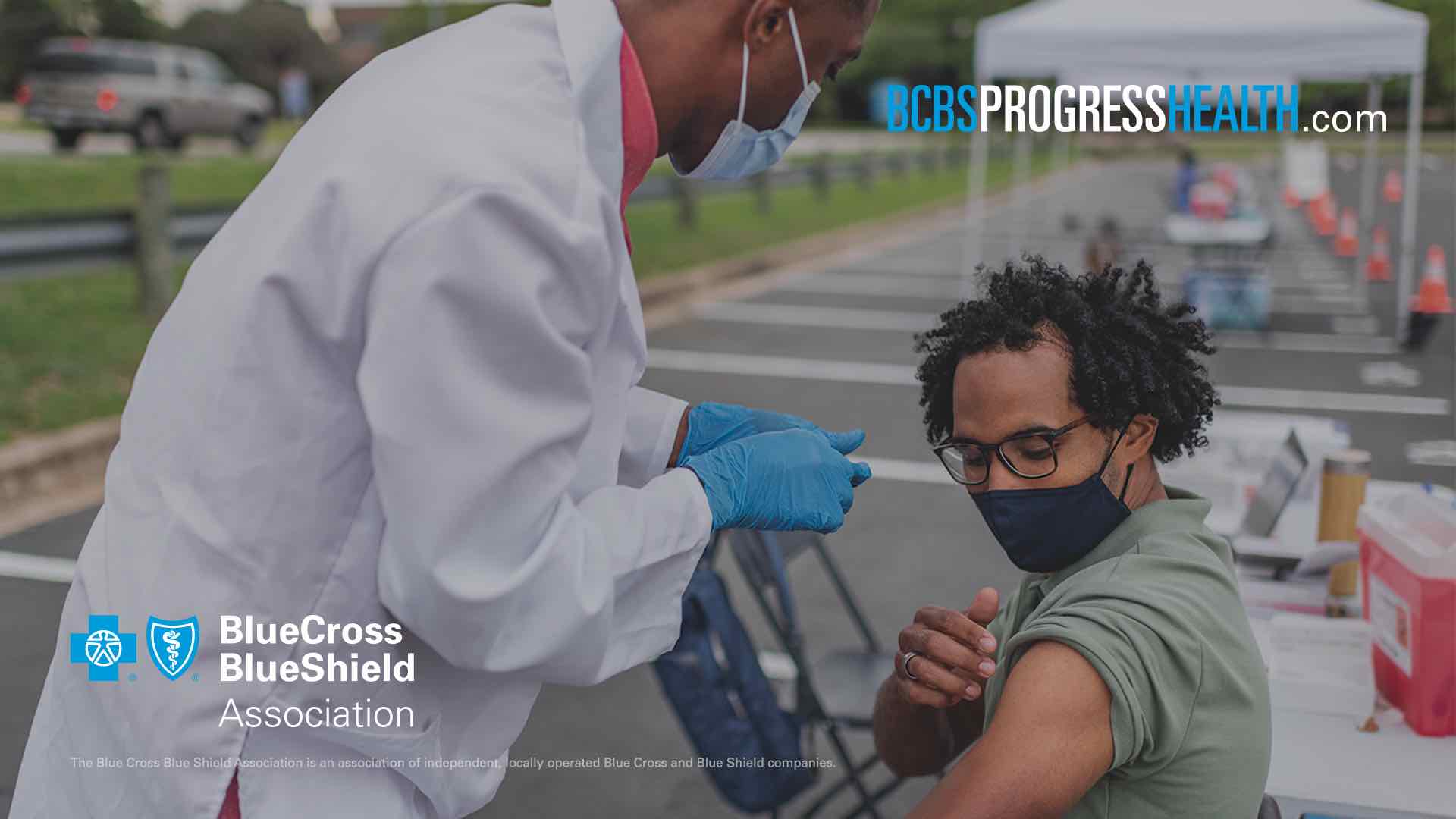Plus, Biogen's latest snafu | Wednesday, July 28, 2021
| | | | | | | Presented By Blue Cross Blue Shield Association | | | | Axios Vitals | | By Caitlin Owens ·Jul 28, 2021 | | Good morning. Today's word count is 962, or a 4-minute read. | | | | | | 1 big thing: Masks and mandates are about protecting the unvaccinated |  | | | Illustration: Annelise Capossela/Axios | | | | The Biden administration is essentially asking vaccinated Americans to help save the unvaccinated from themselves. The big picture: America's "pandemic of the unvaccinated" has gotten bad enough that vaccine mandates are starting to catch on, and masks are coming back — in some cases, even for the vaccinated. - Vaccinated people's risk of serious illness is still extremely low. The problem is that there are simply too many unvaccinated Americans. That's taking a toll on the whole country, and vaccinated people will be asked to shoulder some of that burden.
Driving the news: Biden administration officials are debating how to expand vaccine mandates for some federal civilian health care workers as they prepare to put more testing pressure — and requirements — on the rest of the federal workforce, Axios' Jonathan Swan and Hans Nichols reported last night. - The CDC announced yesterday that vaccinated Americans living in areas with high or substantial coronavirus transmission — about 63% of U.S. counties — should once again wear masks indoors.
Between the lines: The vast majority of coronavirus cases and hospitalizations are among unvaccinated people. - But some vaccinated people can still contract the virus, even if they never experience symptoms, and new evidence suggests that some of those "breakthrough" cases might be more contagious than initially thought, according to the CDC.
- That's the main point of bringing back masks for vaccinated people: To reduce the risk that a person with a breakthrough infection will infect an unvaccinated person, who's still at a much higher risk of serious illness or death.
What they're saying: "Unfortunately, vaccination rates in most U.S. communities remain far too low to minimize COVID-19 transmission, and it is impossible in public settings to know who is vaccinated and who is not," said Barbara Alexander, president of the Infectious Diseases Society of America. Share this story. |     | | | | | | 2. Understanding the unvaccinated |  Data: Axios-Ipsos Poll; Chart: Sara Wise/Axios The most hardcore opponents of coronavirus vaccination — the group who say they'll never get one — tend to be older, whiter and more Republican than the unvaccinated Americans who are still persuadable, according to an analysis of our Axios/Ipsos Coronavirus Index. How it works: We examined data from the five most recent waves of our national survey, from May through last week, comprising 5,232 U.S. adults, Axios' Margaret Talev writes. - Seven in 10 respondents said they'd taken the vaccine. The group we wanted to understand was the remaining 30%.
- Just under one-fourth of the unvaccinated said they're very or somewhat likely to take the shots, but haven't yet. About the same share said they're not likely to do it but haven't ruled it out.
- The rest — a little more than half of all unvaccinated respondents — said they're not at all likely to get vaccinated.
The big picture: Roughly half of the people in the most persuadable group are Black or Hispanic, whereas the most resistant group is overwhelmingly white. The dug-in opponents also identify more solidly as Republican, and are disproportionately concentrated in the South. Between the lines: Two additional themes unite those most resistant to being vaccinated. - They're most likely to say they don't consume traditional mainstream news, and they're most likely to distrust authority figures or institutions, including the Centers for Disease Control and Prevention, President Biden and state governments.
Go deeper. |     | | | | | | 3. Biogen vs. JAMA | | Biogen recently submitted a paper to JAMA, a top medical research journal, that analyzed results from the clinical trials of its new Alzheimer's drug, Aduhelm. - However, Biogen later withdrew the paper because JAMA considered rejecting it unless edits were made, Axios' Bob Herman scooped yesterday.
Why it matters: The FDA's decision to approve Aduhelm has been mired in controversy; experts say there simply isn't strong enough data to show the drug works. And it appears medical journal reviewers also weren't sold on Biogen's interpretation of the data. How it works: Drug companies almost always publish clinical trial results in a peer-reviewed journal before obtaining FDA approval, but Biogen still hasn't done so for Aduhelm. - Biogen executives said during a conference call last week the company was working to get Aduhelm's phase 3 results published in a peer-reviewed journal.
When Axios asked about Biogen's submission to JAMA, the company declined to answer questions beyond saying: "JAMA did not reject the publication. Biogen withdrew the publication from JAMA and decided to pursue other publication opportunities." Go deeper. |     | | | | | | A message from Blue Cross Blue Shield Association | | Using data to build vaccine confidence | | |  | | | | Reluctance about vaccines tends to be higher in communities of color due to a long history of inequitable health treatment. Learn how we are using Blue Cross and Blue Shield data to identify social vulnerabilities and replace hesitancy with hope. | | | | | | 4. How school mask mandates are playing | | If you're curious about how school masking recommendations are playing, look no further than my home state of Florida. The big picture: The CDC amended its guidance yesterday to recommend universal indoor masking for all teachers, staff, students and visitors to K-12 schools this incoming school year, regardless of vaccination status. Zoom in: Despite Hillsborough County's COVID positivity rate hitting an all-time high, many families and students are demanding that masks stay optional for the coming school year, Axios Tampa Bay's Selene San Felice reports. - Anti-mask protestors showed up at school board meetings on opposite sides of the state yesterday to voice their opposition.
- Gov. Ron DeSantis and Education Commissioner Richard Corcoran have repeatedly voiced their opposition to masks in classrooms.
My thought bubble: Expect school mask policies to be an issue in all but the bluest places over the next few months. - Case in point: "We won't go back. We won't mask our children," former President Trump said in a statement last night.
|     | | | | | | 5. Catch up quick |  | | | Illustration: Annelise Capossela/Axios | | | - The vast majority of Purdue Pharma's 120,000 creditors have voted to approve the company's bankruptcy plan, a key step toward resolving thousands of lawsuits against the company and its owners, the NYT reports.
- Even this far into the pandemic, some mask manufacturers are struggling to stay in business, Bloomberg reports.
- The California State University system — the largest school system in the U.S. — announced Tuesday it will require students, faculty and staff on-campus this fall to be vaccinated against the coronavirus.
|     | | | | | | A message from Blue Cross Blue Shield Association | | Making health coverage more affordable | | |  | | | | Enhanced premium assistance that makes health care coverage more affordable will end in 2022. See how Congress can help millions of middle class families by expanding access, reducing costs and making health care more equitable for everyone. | | |  | | It'll help you deliver employee communications more effectively. | | | | | | Axios thanks our partners for supporting our newsletters. If you're interested in advertising, learn more here.
Sponsorship has no influence on editorial content. Axios, 3100 Clarendon Blvd, Suite 1300, Arlington VA 22201 | | | You received this email because you signed up for newsletters from Axios.
Change your preferences or unsubscribe here. | | | Was this email forwarded to you?
Sign up now to get Axios in your inbox. | | | | Follow Axios on social media:    | | | | | |
No comments:
Post a Comment